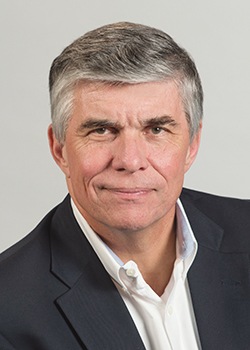Is Anyone Listening Out There? Anyone? (OPINION)
by October 26, 2015 12:00 am 127 views

If there’s a business topic that’s been studied, written about and discussed more than “leadership” I cannot imagine what it would be. Books, blogs and videos on leadership are churned out like dime store novels. Though they may have different takes, angles, perspectives and formulas for leadership success, there is one quality almost universally cited as important to highly effective leadership: communication.
Taking things a step further, leadership communication is usually discussed in terms of how to define an organizational vision, or craft and articulate messages, or become a compelling speaker. To be sure, these are aspects of communication to one degree or another. Less often discussed — much less — is an aspect that goes beyond being merely important: listening. It’s essential to effective leadership. And it’s an attribute of which there seems to be a diminishing supply.
Maybe that’s because when it comes to communicating today, there are an abundance of platforms from which we can, and do, share our thoughts, opinions, plans and activities, no matter how mundane. We do so under a vain assumption that people are as anxious to listen to us as we are to talk to them. Am I exaggerating? Perhaps a little, but not much.
When it comes to effective leadership, one’s ability — and willingness — to listen should be considered at least as important as one’s ability to talk. Therein lies a critical distinction between leaders with position and leaders with influence. And herein lie four measures against which to assess your own “listening quotient.”
What’s your “airtime?” Or put another way, how much time do you spend talking compared to listening? Would your response to that question line up with the answers of others, if they were asked the same question about you? Effective leaders are more interested in listening to what others have to say than what they themselves have to say. They know one learns more by listening than by talking.
Are you more inclined to make statements or ask questions? This is arguably the single-most revealing indicator of one’s listening quotient. We’ve all been around people who are either talking, or waiting to talk. They are all too willing to grace us with their thoughts and opinions, but rarely express a genuine interest in, much less listen to, anyone else’s.
Do you seek perspective or just information? By virtue of their position, leaders are decision makers. The best decisions are made with information, yes, but more importantly with the opinions and perspectives of others. The best leaders freely acknowledge they don’t have all the answers. But they do know the questions to ask to get the answers they need to make sound decisions. Listening leaders solicit the input of others, which not only contributes to gaining potentially critical insights, but also fosters creation of a team that is engaged and “all in.”
Do you listen to understand, or to counter and criticize? One sure way to shut off the flow of information and perspective is to immediately counter anything that doesn’t line up with what you want to hear, were expecting to hear, or which isn’t consistent with your preconceived notions. That’s not to say leaders shouldn’t challenge opinions, perspectives and recommendations of others. They should. But challenging an opinion or premise is a different thing than countering and criticizing it. Challenge is usually revealed in follow up questions that convey interest and curiosity leading to constructive, and instructive, dialogue. Counter and criticism are more often revealed in a dismissive statement that conveys disinterest and cuts off dialogue.
The adage that we are endowed with two ears and one mouth and they should be used in that proportion is wise counsel in polite society. But it’s much more when it comes to becoming an effective communicator and a successful leader. It’s a means through which knowledge is gained, influence is granted and organizations are strengthened.
Thanks for listening.
Richard McKeown is a senior vice president and chief public relations officer for the marketing communications firm CJRW and conducts communications coaching and training sessions for clients throughout the country. The agency has offices in Northwest Arkansas and Little Rock.
